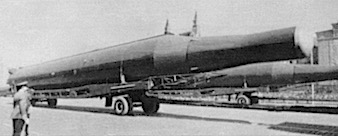John
Irene Baird
Philadelphia/Toronto: Lippincott, 1937
A first novel, the discovery that this copy is a fourth impression surprised me no end. I knew Irene Baird for Waste Heritage – once part of the Laurentian Library – but John meant nothing to me. And yet, in the excellent Introduction to the current University of Ottawa Press edition of the former Colin Hill informs that John was an international bestseller. The Lippincott was followed by other editions in the UK and Australia, leading me to think that – eight decades later – John continues to hold title as Baird's best selling book.
 |
| The Globe & Mail 5 November 1937 |
I don't quite understand its popularity because this sort of novel has never appealed to me. John takes place in rural British Columbia, but this city boy has never been much interested in stories with country settings. I also don't care much for novels in which nothing really happens. Huysmans' À Rebours is not for me. Even Baird's title – my middle name – is a bit of a bore.
John is John Dorey, a perfectly nice Englishman who passes up partnership in the family woollen mills for a simple life on the BC coast. He purchases ten acres, clears same, and farms; for a time, he delivers the rural mail. John has a horse that is killed by a nasty neighbour, though nothing of significance results from the crime. A developer makes an offer for his land, but this is rejected. The most significant event in John's life is a fleeting encounter with a younger married woman. John falls for her, though not so much as a kiss is exchanged.
John is a character study. The man under examination is, as I say, perfectly nice; I'd want him is a neighbour, but would never think to invite him over. John is given to philosophizing. At the urging of his closest friend, the local doctor, he tries his hand at putting his thoughts down on paper:
Book-writing didn't come like the knack of judging a good horse, or training a fine dog till she all but spoke her thoughts. Ideas were not tangible like soil, to pick up and weigh between the fingers. It was a will-o'-the-wispbusiness, writing – though it was strange, too, from the look of their pictures, what unlikely people excelled at it!It's a fine book – Baird's, not John's – but it isn't for me. That said, I do recommend it to anyone who might enjoy this passage:
An eagle, far up, planed serenely by, bent on its eyrie. From the cedar close to the house, an owl awakened – tuk–tuk–tuk-tuk-tuk-tuk— Who knew how many were its notes? Another owl fro the bush on the opposite side of the road answered: the first of ghostly night messages. The frogs would join in before long.Again, this is not for me, though I can almost sense the attraction.
He yawned deeply. There was nothing like the sublime afterglow of bodily fatigue. Even the mind refused to disturb a body so perfectly spent.
Singing frogs might have helped.
Bloomer:
"It's a wonder to me you never married. You're a queer chap."Dedication:
John flushed.
Lord Tweedsmuir, of course, being Buchan. John Buchan.
Object: A well-constructed 235-page hardcover bound in brown cloth. My copy, which once belonged to a woman named Anne Marshall, was rescued four years ago from books left unsold at the end of our local public library book sale. It lacks the rather busy, uninteresting dust jacket.
Access: The Lippincott was followed by British (Collins, 1937) and Australian (Angus & Robertson, 1938) editions. A Swedish translation, also titled John, was published in 1938 by Medén.
Held by most Canadian university libraries. Bibliothèque et Archives nationales du Québec stands alone amongst those serving the public.
A dozen copies are listed for sale online. At eight dollars, the cheapest, a "Good" Lippincott copy, is described thusly: "May not look good on your bookcase after reading and probably not suitable as a present unless hard to find elsewhere." Hmm...
The best of the lot is an inscribed Lippincott first. Price: C$55. Suitable as a present, I suggest.




















